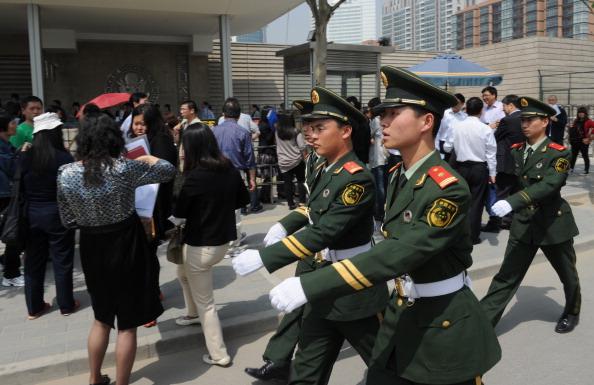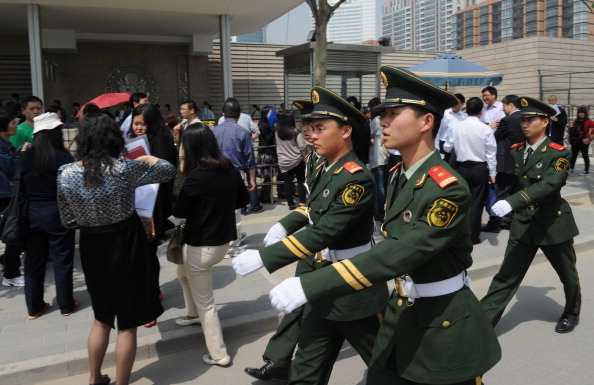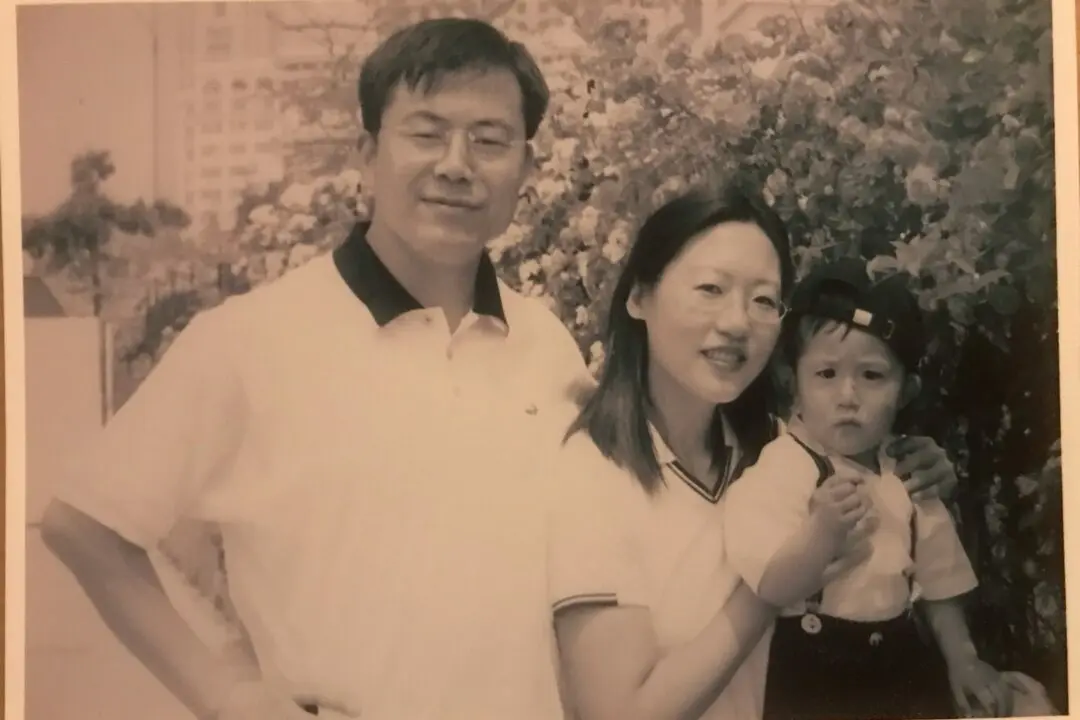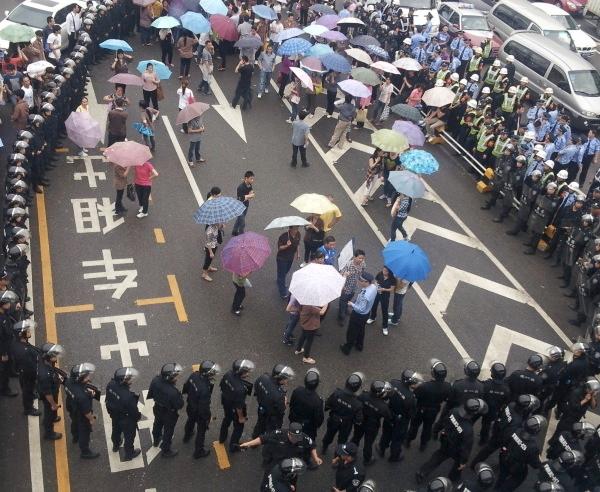Petitioners have started arriving at the U.S. Embassy in Beijing on a daily basis, apparently triggered by the recent high-profile escape to the diplomatic compound by Chinese human rights activist Chen Guangcheng.
The petitioners were not trying to defect from China to the United States, but instead mainly attempting to raise awareness of their plight.
Wang Chunmei and her brother Wang Yaxin, from Dalian city in northeastern China, petitioned to the U.S. Embassy in Beijing on Sunday because they were forced from their home, but were promptly blocked by well-armed police who were stationed outside the facility.
A paramilitary police officer threatened the two, saying if they “dared to enter the embassy, they would both be shot,” Wang Chunmei recalled in an interview with The Epoch Times.
Wang told the police officer: “Shoot me. We have already been forced out of our home by the government and now we have nowhere to go. We’re going to die anyway; I would rather be killed by police in front of the U.S. Embassy than die in a remote location.”
The armed police officer then called the conventional police, who took the petitioners into custody in Jingzhuang village in Beijing.
Wang, who said she and her brother went to the U.S. Embassy nine times previously, described the embassy as crawling with armed police, plainclothes police, and uniformed police officers. In the past, her ID was checked or photographed and she was removed immediately every time, she said.
Asking US Embassy for Help
There have been dozens of petitioners attempting to get into the embassy each day since Chen Guangcheng defected, Wang said.
The petitioners, she said, have no other place to go in solving their problems as no other government agency will help. In the past, if they sought help, the petitioners could contact the Office of Letters and Calls, but that agency recently limited registrations to once every three months.
And even if petitioners register with the agency, it fails to help them, Wang said. She said the office is merely for show, giving the illusion that the government has the ability to help people with their humanitarian needs.
Huang Qi, a human rights activist and the founder of 64tianwang.com, the first human rights website in China dedicated to releasing covered-up news, told The Epoch Times that there is a fundamental difference between petitioners trying to seek help from the U.S. Embassy and high-profile cases like Chen Guangcheng or Wang Lijun trying to seek asylum.
Huang said the petitioners are trying to raise awareness about their problems and get help from the Chinese regime or look for a peaceful resolution.
He reiterated Yang’s claim that petitioners have more frequently attempted to seek help from the U.S. Embassy, citing a lack of responsible relief channels inside China. Further, he said this will draw attention from international human rights organizations and governments.
Following Chen’s escape to the U.S. Embassy, the powerful Political and Legislative Affairs Committee headed by Politburo member Zhou Yongkang mobilized a large number of police and security forces to stave off the wave of petitioners trying to enter the embassy, Huang said. Police oftentimes threaten them with death.
Read the original Chinese article.
The Epoch Times publishes in 35 countries and in 19 languages. Subscribe to our e-newsletter.





